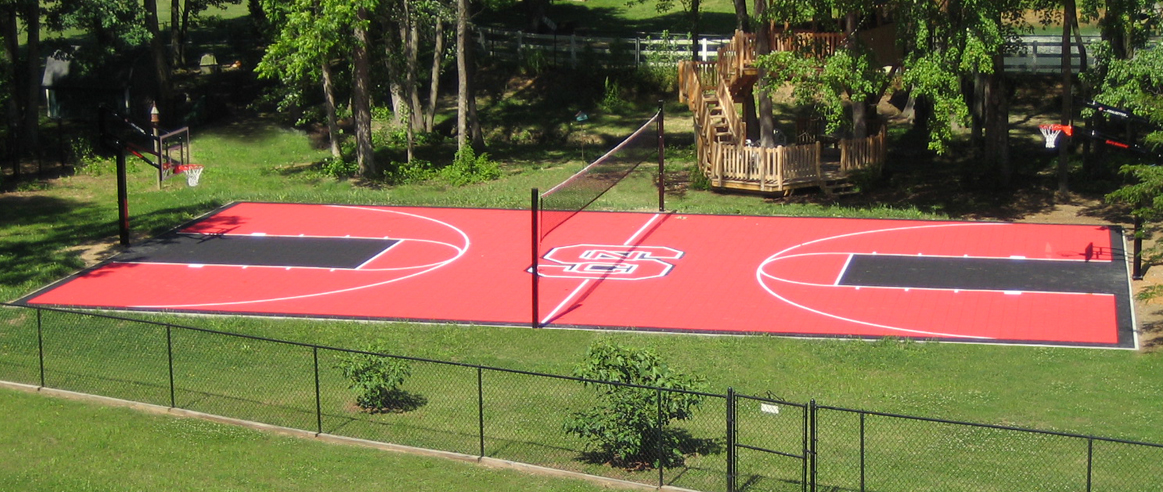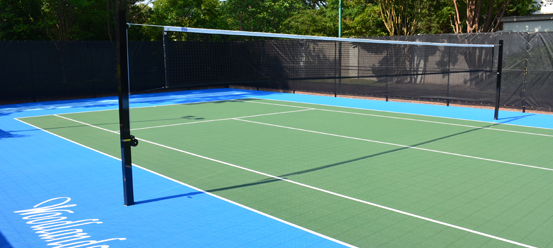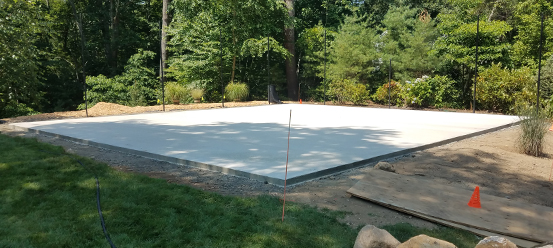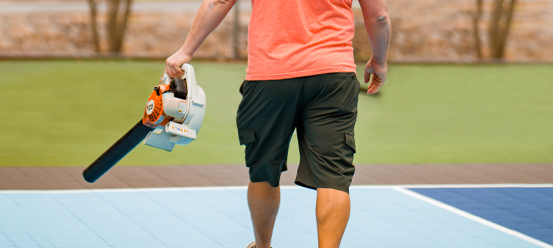

Interlocking Garage Floor Tiles

We've collected the most commonly asked questions we're receiving when users are ready to purchase a volleyball court system. Browse the questions below to see if we can answer your questions. If you can't find the answer to your question, contact a VersaCourt team member today.
How much does it cost to build a VersaCourt Volleyball Court?
Like many construction projects, the costs to build a volleyball court with VersaCourt court tile will vary depending on a number of elements including its size, excavation requirements, type of base and quantity and quality of its accessories. Realistically, it is impossible to estimate a cost without evaluating these in more detail, but you can learn more about each element that affects the Cost of a Backyard Volleyball Game Court.
Can we buy a Court from VersaCourt, but install it ourselves?
At VersaCourt, not only are we happy to work with our customers in whatever way works best for them, but our court preparation and packing process is designed to make installation as easy as possible. Once you have a solid, flat surface on which to place the court, the actual installation of the VersaCourt is relatively simple. Learn more about our installation process.
Do you have local installers and dealers that can help me?
Depending on the area of the country in which you live, we will most likely have a certified dealer or relationships with qualified installers or concrete companies that can help you. The centralized nature of our design, court preparation and packing process makes the court installation process very simple but our local dealers are still the ideal option for those customers looking for on-site design assistance and a turnkey solution. Contact Us to find a VersaCourt dealer in your area.
Do I need a concrete base for my volleyball court?
We definitely recommend using a 4” thick concrete base with #4 rebar reinforcement for most volleyball courts as this base option tends to provide the most permanent solution with the best playability. However, we do have customers that are very happy with courts placed on an asphalt base. We don’t recommend compacted stone as a base. Learn more about base/subsurface options. If you're looking to avoid concrete or asphalt installation because of permeability concerns, we not offer the Foundation Panel. This panel can be used as a sub-surface to the court and placed directly over turf or compacted stone to provide a stable base system.
Can I put the VersaCourt volleyball court on my driveway?
Yes, you can install a VersaCourt court on your driveway, but only our Active Tile system is designed for vehicle traffic. Our Active Tiles are an excellent choice when you're in need of a court on your driveway that is durable, all-weather, and can be driven/parked on. If you plan to drive or park on your court, other VersaCourt tile systems are not recommended.
What Court Sizes Do You Offer?
US standard volleyball regulation court size is 29’5” W x 59’ L and the standard net system is 32’ long and 39 inches tall. If you’re looking for a smaller volleyball court option, you can custom design your own court to fit the size you have available for a volleyball court with our Interactive Court Designer tool.
How Do I Clean My VersaCourt Volleyball Court?
VersaCourt tile can be cleaned in a variety of ways. If it is an outdoor application, leaves, sticks, and trash can build up on the surface. A leaf blower can be used to remove most debris. If the tile surface is dusty or dirty then a power washer can be used – be sure to set it on a low-pressure setting and do not directly spray the painted lines. Over time dirt, leaves, rocks and other debris may accumulate under the tile. If this does occur to the point where the tile is full, undo the tiles in large sections and slide the tile out of the way to clean the subsurface.
What if a tile becomes damaged?
While it is very infrequent that tiles get damaged, it is nice to know that most can be replaced in a matter of minutes. Simply insert a hook or screwdriver into a hole closest to the corner of the tile which does not have loops and pull up.
What can I do if my court shifts on its surface?
Courts which are smaller in size and see a lot of activity may be susceptible to shifting. This is generally more noticeable in basketball courts. The tiles tend to shift towards the goal which is caused by continuously running and stopping toward the goal. If you find that your court is shifting, please visit our Instructions for Anchoring your Court page.
Will cold temperatures or snow affect the tile?
VersaCourt tile are engineered to withstand extremely cold temperatures and snow. In fact, our outdoor court tile has been brittle-tested to minus 25 degrees Fahrenheit and our courts have been successful in Canada, Alaska and other areas with extremely cold winters.
*Price ranges provided on this page are subject to change based on court size, game lines, and other requested customizations. Price ranges for tiles are averages based on VersaCourt pricing. Excavation, subsurface preparation and concrete pricing are based on national averages and are not included in this price as they can vary region by region. Court price range does not include court accessories, such as net systems and goal posts or shipping costs. Please reach out to our sales team to get a quote on a custom court design for your space.


